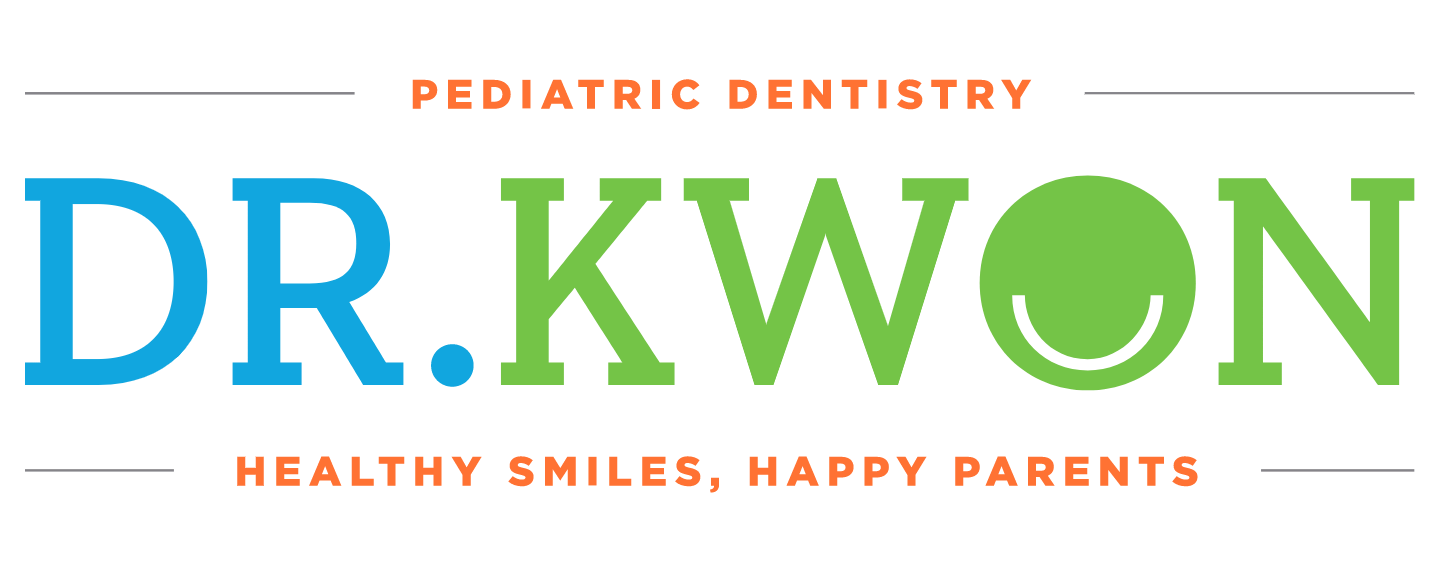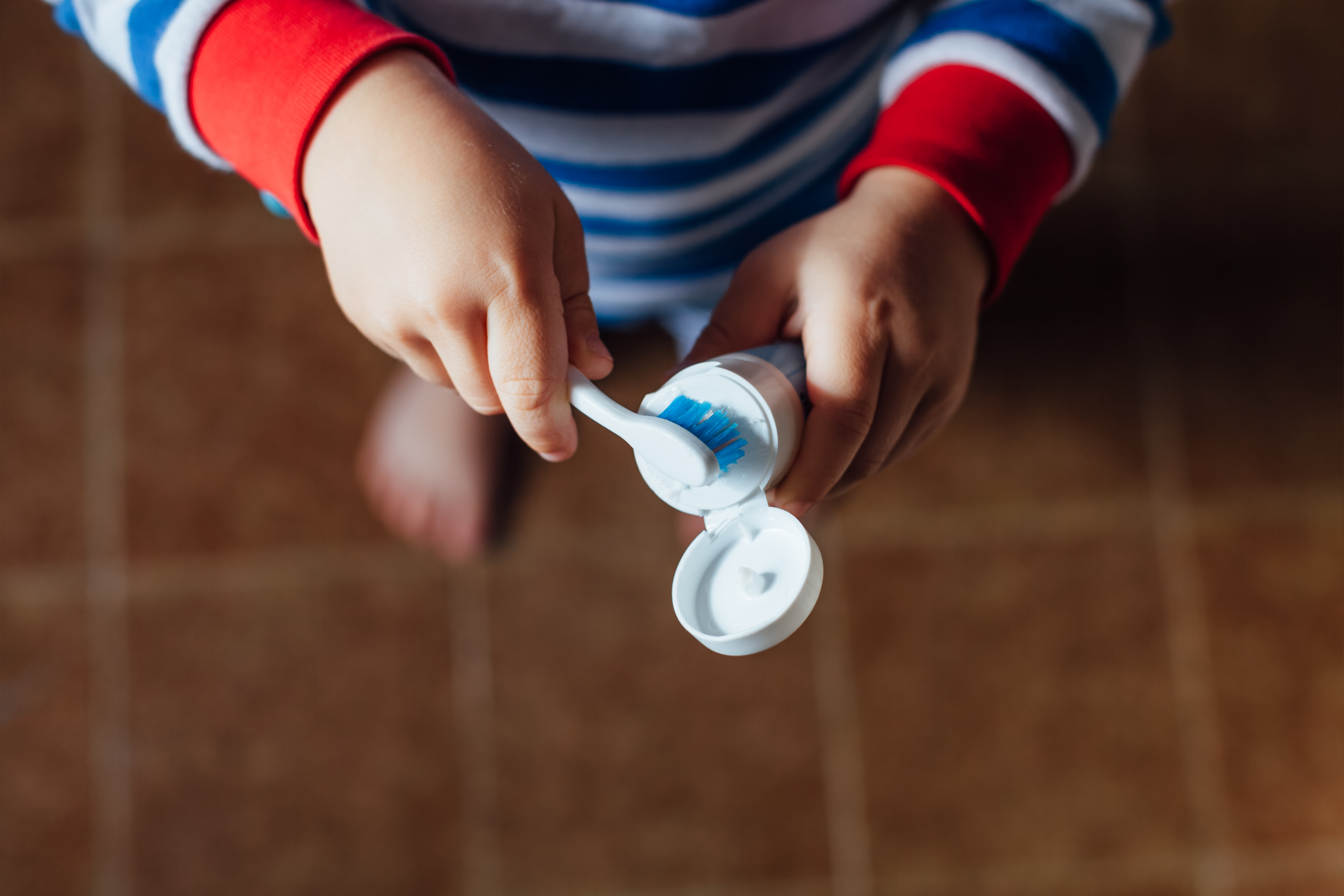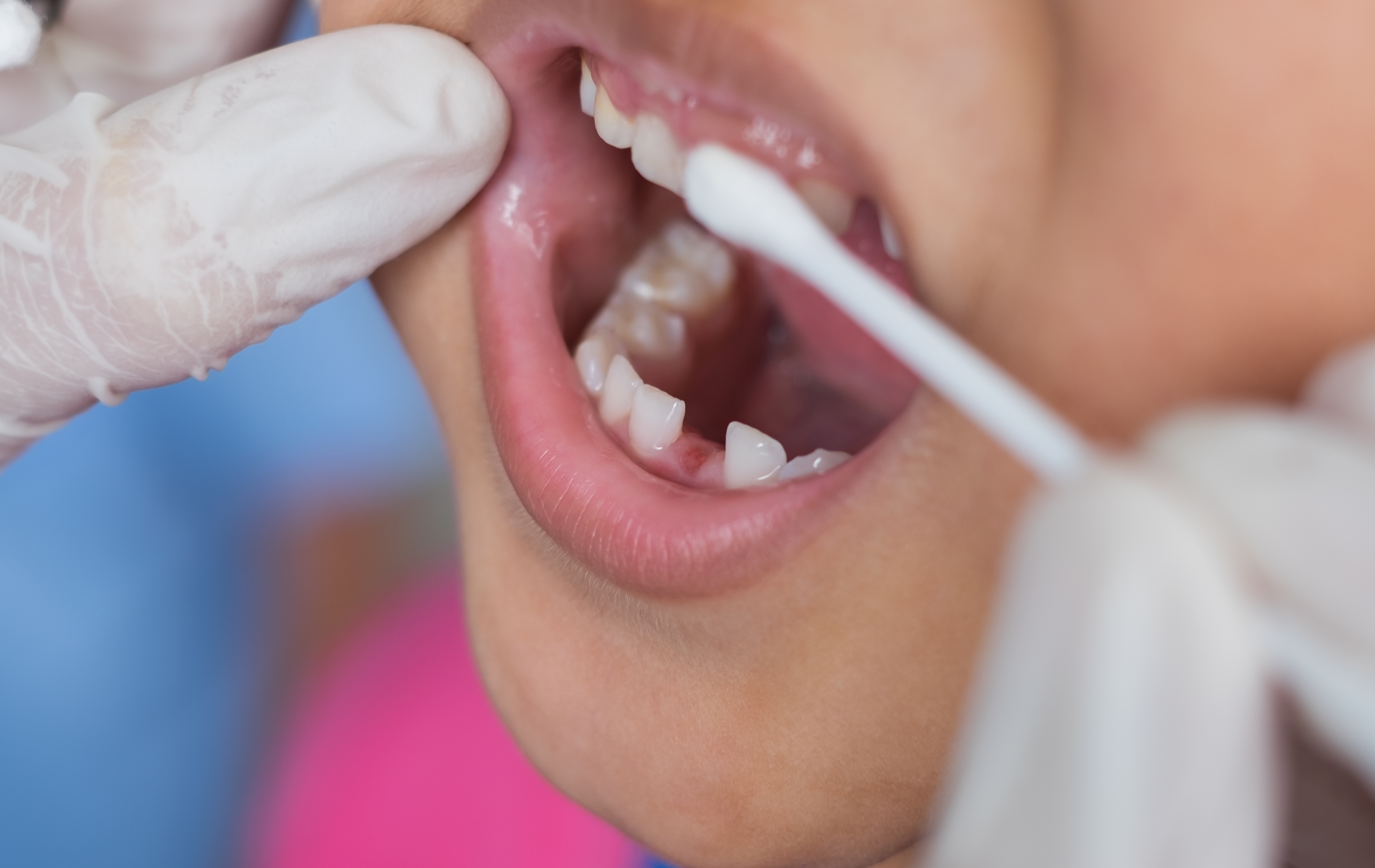Looking for compassionate pediatric dentist for your child? You’ve come to the right place. Dr. Kwon Pediatric Dentistry provides pediatric dental care you can trust in a fun, friendly setting.
Your child’s teeth from birth to adulthood
Your child’s teeth and jaw will undergo many changes from the time they’re born until they reach full maturity as adults. Here’s a look at the stages of dental development.
Infant/toddler:
Babies are born with 20 primary teeth situated just under their gums. These teeth, like adult teeth, vary in shape, size, and location. Their differences all work together for a purpose – to help kids chew comfortably, speak clearly, and smile happily. They also help form and shape the mouth, jaw, and face.
Baby teeth begin to erupt at around 6 months of age and sprout over the next few years until all 20 (10 upper and 10 lower) have made an appearance. The American Academy of Pediatric Dentistry (AAPD) recommends children start going to the dentist by age 1 or within 6 months of their first tooth.
Young children:
Most often, children will begin to lose their primary teeth around age 6, but it can happen any time between the ages of 4 and 7.
Typically, the first baby teeth to fall out are the two bottom teeth, followed by the two top front teeth. These are called the lower and upper central incisors. Usually the lateral incisors, first molars, canines, and second molars follow. Expect your child to lose their baby molars between ages 10 to 12.
Teens:
Adult molars emerge around age 13. By age 21, your adult child should have a full set of 32 permanent teeth. That’s 12 more than they were born with – 6 additional teeth on the upper jaw, and 6 more on the lower jaw. Four of those new ones are the wisdom teeth, which usually erupt between ages 17 and 21.
Before Your First Visit:
To save you time on your visit, you can fill out or update your patient information forms before your appointment. That allows us to get to your child’s dental exam quickly.
We may call or contact you before your scheduled visit to confirm the appointment time with you. To reschedule or cancel your appointment, please contact or call us at least 24 hours prior to your appointment time.
Appointment Policy
We will work with your schedule to arrange the most convenient appointment time for you and your child. We are also happy to provide your child with a school excuse if needed.
We recommend that preschool-age children or those having extensive treatment come in early in the morning. Our ability to communicate effectively and create a positive dental experience is greater when your child’s alertness and energy levels are at their peak.
Follow-Up
Following your child’s visit, focus on a healthy diet and consistent dental routine to help your child enjoy healthy smiles for life. We encourage you to monitor your child’s dental hygiene habits and guide them in brushing and flossing to help lower their risk of cavities. Scheduling regular visits can help your child maintain optimal oral health and make sure they’re growing into a strong, healthy smile.
We love hearing about conversations you have at home about your child’s smile, and we’re here to answer any questions you or your child may have about their teeth. We believe in education and prevention, both in the office and at home, and we want to make sure we’re right by your side along the way.





